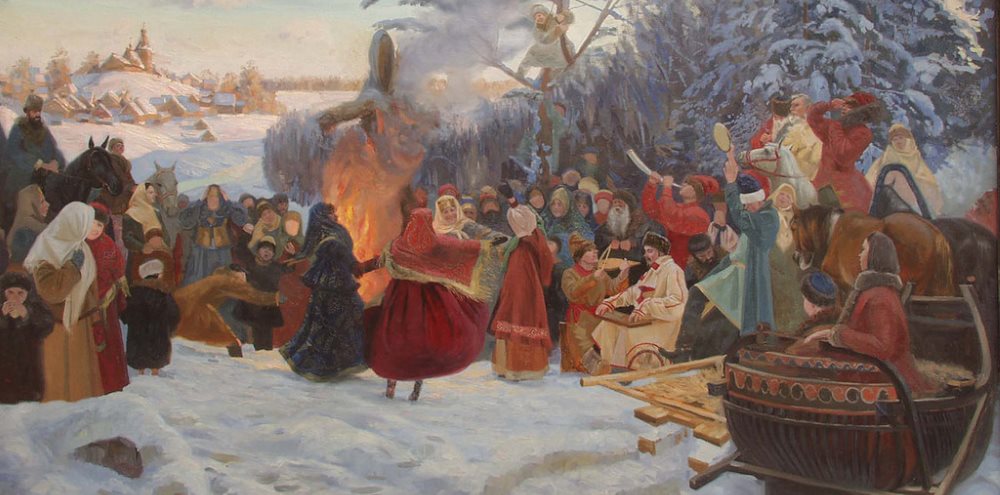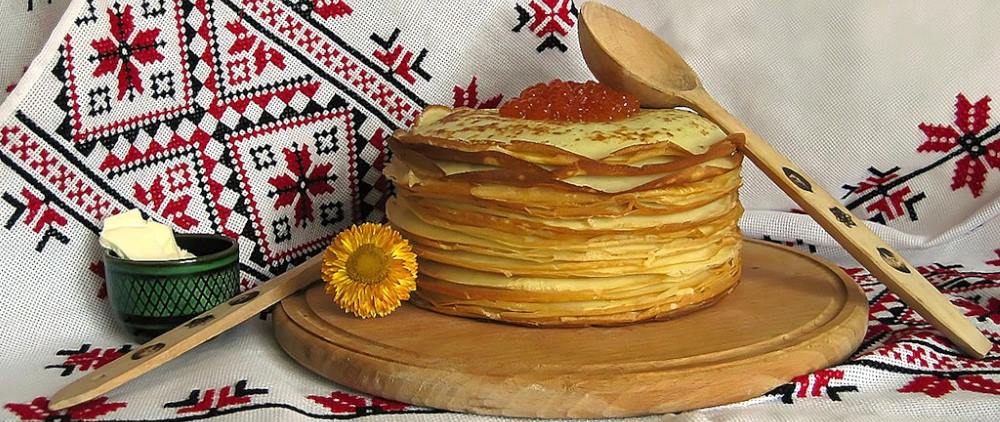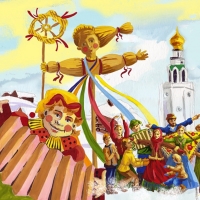“Maslenitsa obyedukha - daygam priberukha”
Maslenitsa or Maslyana is a traditional Slavic holiday, which in 2016 will last from March 7th to March 13th.
Maslenitsa is celebrated before the Great Lent, and it is the only pagan holiday still celebrated and accepted by the Orthodox Church. Maslyana is considered a celebration of the farewell to winter and the greeting of spring. The ancient Greeks and Romans celebrated it during the Bacchanalia and Saturnalia.
Maslyana is celebrated for 7 days, and each day has its unique meaning.

Monday – “Meeting of Maslyana”. On this day, a Maslyana scarecrow is usually organized, along with sledding.
Tuesday – “Zaigrysh”. The celebration begins with people in the streets, jesters, children and adults building ice castles.
Wednesday – “Lakomka”. The favorite day of all men, as it is the tradition to treat people to pancakes.
Thursday – “Razgul”. It is considered the merriest day, as mass festivities begin, with singing, caroling, and round dances around the scarecrow.
Friday – “Mother-in-law's Evening”. All sons-in-law invite their mothers-in-law for pancakes.
Saturday - the Maslyana scarecrow is burned, symbolizing the departure of winter and the arrival of spring.
Sunday – “Forgiveness Sunday”. On this day, one must ask for forgiveness from relatives and friends, as well as forgive them, in order to enter Lent pure and harmonious.
4 Interesting Facts about Maslyana:

- Pancakes symbolize the sun. When we enjoy pancakes, we eat a piece of power, strength, and grandeur of the greatest star.
- Maslenitsa was once called Komoeditsa. “Kom” means a bear, who woke up from hibernation at the beginning of spring, and people would give him pancakes as a sacrifice. This is where the expression “the first pancake is always a lump” comes from.
- The date of Maslenitsa depends on the date of Great Lent; it begins one week before the start of Lent.
- On Forgiveness Sunday, the accepted reply is “God forgives, and I forgive you!”





